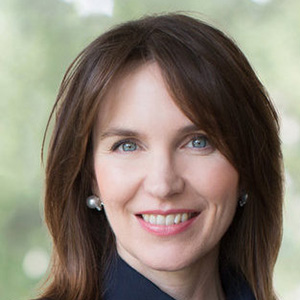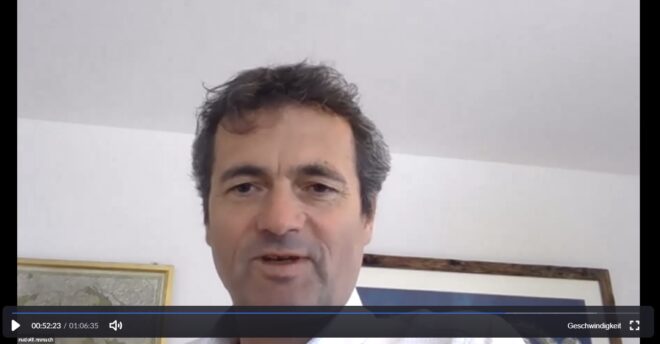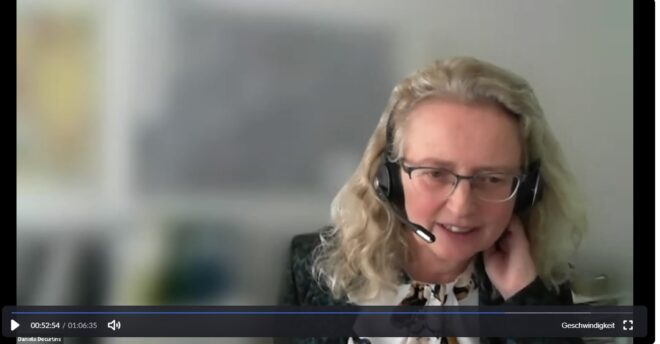





On the occasion of a webtalk organized by the EMBA HSG Alumni, Prof. Dr. Rudolf Minsch gave an economic classification of the effects of Russia’s war in Ukraine end of February. The Chief Economist of economiesuisse, the umbrella organization of the Swiss economy, commented on sanctions and possible effects of the current developments on the Swiss economy.

In order to understand the possible motives of Russian President Putin for the invasion of his troops into Ukraine, Prof. Minsch started with a retrospection of the political maps in the past decades. After the annexation of the strategically important Crimean peninsula, it was probably elementarily important for Russia to also have control over Ukraine or not to lose it to NATO. The pincer-like attack the night before yesterday was certainly planned for the long term, he said. “The big danger now is that the situation escalates further and there is an attack – not even strategically conscious – on a NATO state, for example Poland. Then NATO would have to respond actively.”
Prof. Dr. Minsch considers the sanctions in place to date to be of little consequence. “In the past, relatively little was achieved with international sanctions. In Cuba and Iran, the regimes could have lived with it just fine,” he said. “Most sanctions hit the civilian population and not the ruling class. To have a real impact, they would have to be much tougher and really hit the regime and the government,” he said. From an economic point of view, the current sanctions are not sufficient. Currently, however, no one wants to bear the consequences that sanctions entail because they also affect the sanctioner. “From my point of view, Russia being excluded from the SWIFT global payment system would hurt quite a bit.”
Looking at the Swiss economy, Minsch pointed out that Ukraine is not essential for Switzerland as an economic partner. However, the “quasi-regression” to the Cold War poses an immense danger to the global economy. The stock exchanges had crashed, especially the Russian and Ukrainian ones had lost massively. One could speak of a hara-kiri calculation on Putin’s part, since it is above all his own economy that is being severely affected. Russia’s economic situation has been tense for quite some time. With regard to the European market, Prof. Dr. Minsch expects a decline in the economy. One can only hope that there will be no further escalation with NATO. In the event that Russia were to install a kind of “puppet government” in Ukraine similar to that in Belarus, the purely economic consequences would be manageable in his opinion.
Prof. Dr. Minsch also referred to the currently much-discussed dependence on Russian gas. He pointed out that for both Switzerland and neighboring Germany, about 50 percent of gas imports come from Russia. “We have to break free from dependencies,” Minsch explained. The shutdown of the nuclear power plants in Germany were an own-goal in this context. Focusing on energy prices in Switzerland, Minsch began by illustrating that the franc was currently strong. Energy price increases therefore have less of an impact in Switzerland than in a country with a weak currency. In addition, the Swiss economy has a higher energy efficiency than the USA or Germany. Consumers therefore spend less on energy. Fossil energies are subject to higher taxes in Switzerland, he said, citing refueling as an example. A tax of 76 centimes is due per liter of diesel. At a price of 50 centimes per liter of diesel, the final retail price including VAT is CHF 1.36. If the price of oil were to increase by 100 percent, however, the pump price would correspondingly rise by “only” 40 percent.

In the concluding discussions with Co-President of EMBA HSG Alumni Daniela Decurtins and the participants of the webtalk, Prof. Dr. Minsch reiterated when asked that the current sanctions would not stop Putin. However, he added that the flank with China must also be closed, since China will probably not join the sanctions of the EU and the USA and Russia thus has little to fear. Daniela Decurtins and Stefan Stübi, Co-Presidents of the EMBA HSG Alumni, were very pleased with the Webtalk: “We strive to offer our alumni interesting and topical events with top-class speakers and to create added value. The fact that we were so up-to-date with our Webtalk and that Ruedi Minsch was so competent was a stroke of luck for us.”
 EMBA HSG Impact, News
EMBA HSG Impact, News
 EMBA HSG Impact
EMBA HSG Impact
Do you have any questions or require further information? We will be happy to help.